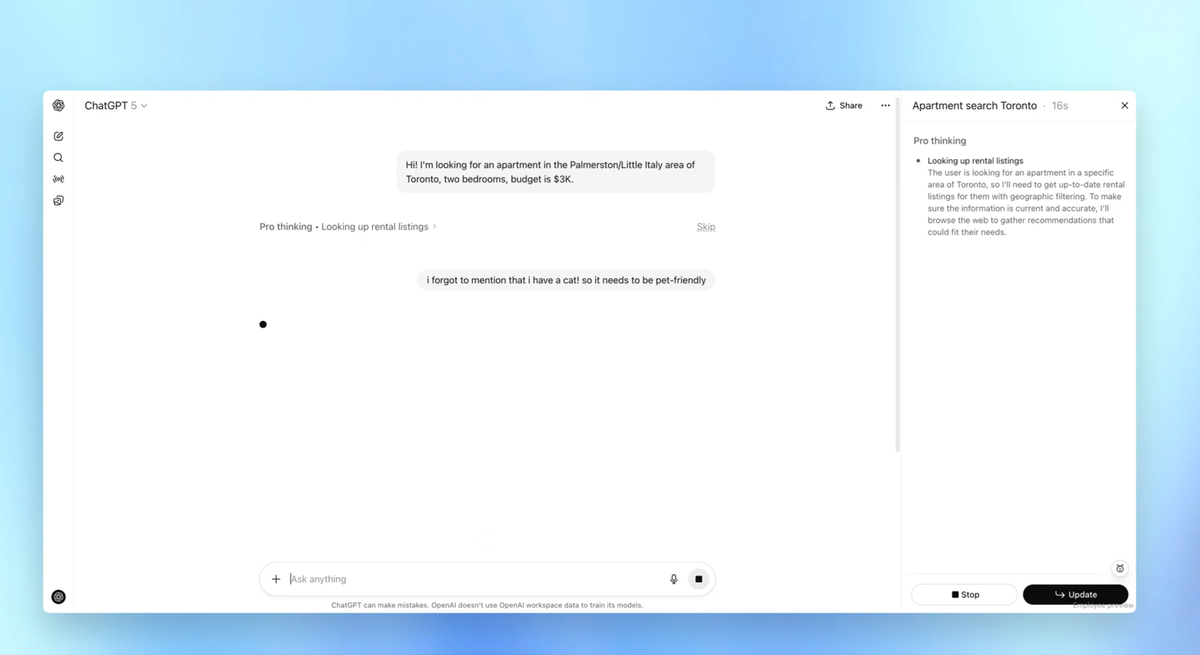Countless factors affect eye health, from genetics to the environment. Vision is widely considered our most important sense, yet many of us don't give our eyes the attention we should. Our brains are so good at adapting to changes that you may not notice your vision worsening until a more drastic issue arises. That's why it's vital to have regular check-ups -- and the more you know about your eyes, the better.
We connected with four optometrists and eye specialists for expert insight into 13 factors and habits that are secretly hurting your eyes and simple ways to combat them.
13 habits secretly hurting your eyes
The American Academy of Ophthalmology predicts a sharp rise in vision issues in the next 30 years. Alongside genetic or age-related changes in vision, various daily practices can negatively impact eye health, making us more likely to suffer from eye strain and discomfort. Here are the factors to keep an eye out for.
1. Indoor allergens
Spring has arrived, bringing seasonal allergies along with it. It's no secret that allergies can affect our eyes, often causing redness, watering, itchiness or irritation. But it's not just outdoor allergens that affect eye health -- indoor allergens also play a role.
"Using HEPA air purifiers can help reduce dust, pet dander, kitchen fumes and other indoor irritants. I always recommend that patients avoid touching or rubbing their eyes, as this can make allergy symptoms worse," said Dr. Artis Beatty, optometrist and chief medical officer for MyEyeDr.
"Having air purifiers or humidifiers is recommended to help minimize direct exposure to allergens and increase the moisture in your surroundings. They also generally help alleviate itchiness or discomfort," said Dr. Kevin Chan, principal optometrist and senior clinical director of Treehouse Eyes.
Read more: Humidifier vs. Purifier: We Asked Medical Experts Which Is Better for Allergies
Indoor allergens affect not only your eyes but also your overall health. CNET wellness editor Anna Gragert recently investigated the effects of poor air quality on workouts and recovery and learned of the potential impacts, such as bronchitis, asthma and even lung cancer or stroke.
If you can't find relief from your allergies, Beatty recommends visiting your doctor to discuss using prescription or over-the-counter drops or oral or nasal medications.
2. Makeup products
All that glitters is not gold -- even makeup can harm your eyes. Improper use, poor hygiene and expired products may cause serious damage to your skin and eyes, including clogged pores, bacterial or mold growth, and infection. According to the Mayo Clinic, the typical shelf life for mascara and liquid eyeliner is only three months. In one study, up to 98% of participants reported using makeup after the expiration date, the most common product being mascara.
"Understanding cosmetic safety is crucial when it comes to your eyes. Some important tips include making sure that you don't get any products inside the eye. We always think of mascaras, eyeliners or eyeshadows as the culprits, but even foundations or concealers can cause trouble if we let them get too close to the eye's surface," Beatty said.
Makeup that's expired or not cleaned or stored correctly can harbor bacteria and mold growth.
Laindiapiaroa/Getty Images"Avoid products with harsh fragrances or glitter near the eyes. Look for brands labeled ophthalmologist-tested, hypoallergenic and preservative-free -- like Daily Practice's ophthalmologist-created skin care for the eyes," said Dr. James Kelly, MD, refractive surgeon specialist and comprehensive ophthalmologist in NYC.
Eye specialists recommend water-soluble products, as they are easier to rinse off. Proper storage of cosmetics is also important. Improper storage can affect a product's longevity and lead to bacteria or mold growth, putting you at risk of infection and subsequent eye diseases.
Read more: Beauty Brands You Should Try in 2025
3. Rubbing your eyes
Rubbing our eyes is a natural response when they feel irritated or itchy. "Rubbing can increase the risk of scratching your cornea -- particularly if small particles from the air are the cause. Additionally, it can introduce bacteria or viruses onto the surface of the eye, increasing the risk of infections. Instead of rubbing your eyes, it's better to address the underlying cause," Beatty said.
"While it can help alleviate itchiness temporarily and 'feel good,' constantly rubbing the eyes can actually alter the shape of the cornea," Chan said.
Putting unnecessary pressure on your eyeballs can also cause tiny blood vessels to break and worsen pre-existing conditions, such as glaucoma and allergies. Because the skin around our eyes is extremely thin and fragile, it may even create dark circles and cause wrinkles to form prematurely. Bottom line? Don't do it.
4. Digital strain
A 2025 report by VSP Vision Care and Workplace Intelligence found that 68% of employees experience digital eye strain, which happens when you spend too much time looking at screens. The symptoms (blurred vision, itchy or dry eyes, headaches and eye fatigue) are usually temporary but they can be uncomfortable and affect overall well-being and productivity. Here are a few expert-recommended strategies to reduce the effects of staring at screens all day:
- Use the 20/20/20 rule: "When we sit in front of a screen our eyes have to work rather diligently to maintain our clarity for objects at such a close distance. As a result, we don't blink as often as we should and our eye muscles begin to fatigue. For every 20 minutes on the screen, take a 20-second break and look at something at least 20 feet away. This helps your eyes reset and relaxes the muscles involved in focusing the eye while restoring your blink rate to normal," Beatty said.
- Take longer breaks. Incorporating daily outdoor strolls into your routine is good for your mental health and productivity and allows your eyes to focus on distant objects.
- Optimize your digital setup. This includes increasing the size of your text and adjusting the contrast to make it easier to read. "When using a computer, position the screen so that the top is at or slightly below eye level to reduce neck and back strain, and ensure it's at least an arm's length away," Beatty said.
- Wear blue light glasses or lenses. When asked about the effectiveness of blue light glasses, Beatty said, "There is a lot of continuing research on blue light and how it affects vision, sleep and overall ocular health over time. I recommend that individuals who spend a lot of time in front of screens consider blue light glasses to support their long-term vision health. And because these glasses not only filter blue light but often offer a reduction in glare and can help with focusing when in front of a computer screen, they can be highly effective in reducing digital eye strain symptoms."
"The biggest relief from digital eye strain often comes from better screen habits, not necessarily the [blue light] lenses," said Kelly.
Pixdeluxe/Getty Images5. Aging
You probably saw this one coming. As you age, your eyesight can change or worsen for multiple reasons. Tear production slows (causing drier eyes) and the proteins in your lens might begin to break down, resulting in cataracts. Older people may experience symptoms of age-related eye conditions, such as:
- Blurred vision
- Burning or itchiness
- Eyes that are too dry or watery
- Sensitivity to light
- Trouble discerning certain colors
The good news is that you can take steps to help prevent the onset of certain age-related eye conditions, which includes regular physical activity. A 2022 study published in Harvard Women's Health Watch found that exercise can boost tear production, which helps keep your eyes moist and protects them from irritants.
"Staying active is extremely important for your overall health and benefits your eyes as well. Keeping active means your eyes are constantly being used to help maintain hand-eye coordination and ocular muscle balance. It also means you are likely more aware of changes in your vision that could be a sign of trouble," Beatty said.
Read more: Expert Tips for Maintaining Your Eye Health
6. Not wearing sunglasses
This one is also no surprise -- you need to protect your eyes from the sun. Dr. Mackenzie Sward, a board-certified ophthalmologist, recommends wearing 100% UV protection every time you step outside. "Harmful UVA and UVB rays in the atmosphere can increase the risk of macular degeneration, cataracts, skin cancer of the eyelid and other diseases of the eye," she said.
Try to get in the habit of always wearing sunglasses with UV protection outdoors.
Grace Cary/Getty Images"Cumulative UV exposure and damage only increases the lifetime incidence of macular degeneration, cataracts, pterygium and skin cancer," she said. These conditions may be permanent or require surgical treatment to correct. People in occupations with more outdoor work, such as construction or landscaping, are at higher risk of certain conditions related to UV damage, so they should be more mindful of protecting themselves.
"Don't be deceived by cloudy skies or cooler weather -- it's still important to wear sunglasses, no matter the conditions," Beatty said.
7. Pets
Approximately 10% to 20% of the population has pet allergies, most commonly to dogs and cats. Despite this, one in three Americans allergic to cats live with one anyway, choosing to suffer the consequences in return for the love and affection our pets provide.
Pet allergies occur because of a specific protein in the pet's dander, saliva and urine -- not the fur itself. This dander can carry other allergens, such as pollen and dust mites, further triggering symptoms.
"Proper pet grooming is an important component in the overall allergy maintenance regimen," Kelly said. Regardless, the key is to always wash your hands after touching your pets and avoid touching or rubbing your eyes.
Adding an air purifier to your arsenal of allergy defense can significantly help with pet dander. CNET's experts tested and chose the Blueair Blue Pure 511 air purifier as the best for those with pets, especially if you share the bedroom with them at night.
8. Eye drops
It's possible to overuse or become dependent on eye drops, creating a cycle that can cause further damage. Over-the-counter eye drops typically should not be used daily or as a long-term solution; instead, they're usually intended for temporary treatment as you pinpoint the underlying cause.
"Eye drops can be an effective solution for issues like itchy eyes, dry eyes or redness. However, it's important not to exceed the recommended dosage. If over-the-counter eye drops aren't providing relief, it's a good idea to consult with your eye doctor for recommendations or prescription options," Beatty said.
Signs you might be overusing eye drops include increased dryness, irritation, watery eyes or blurry vision. Redness-relieving eye drops, in particular, have the potential to cause rebound redness, where the blood vessels are damaged, and the redness of your eyes returns once you stop using them -- sometimes worse than before.
Read more: Should You Stop Using Eye-Whitening Drops?
9. Contact lenses
If you think you're saving money by recycling your contacts, it may cost you more in the long run. As someone who used to do this and, as a result, ended up with multiple eye infections, Giselle can attest that it's a habit worth breaking. "When I switched to using daily contacts and glasses interchangeably, I drastically reduced my chances of developing an eye infection, keeping my eyes healthier," Giselle said.
Changing to dailies is worth considering: One study found that people who wear reusable contact lenses are about four times more at risk of developing acanthamoeba keratitis, a rare eye infection that can increase your risk of vision loss or blindness, compared with people who use daily contacts.
"If contact lenses are not used properly, such as extended wear for long hours, swimming with them or not following the recommendations by eye care providers, it can result in blurry vision or discomfort. It may also increase the risks of eye infection, which, in the worst-case scenario, may lead to permanent vision loss," Chan said.
Here are a few best practices:
- Wash your hands before touching the lenses
- Remove them before bed at night
- Do not wear them for extended periods
- Don't use them if you have pain, redness or discharge
- Never rinse lenses in tap water
- Clean your contact lens case regularly
Sward warned, "Sleeping in your contact lenses and failing to properly clean your lenses can significantly increase the risk of a corneal ulcer caused by a bacterial, fungal or parasitic infection."
Read more: Best Places to Buy Contacts Online
Additionally, Beatty advises that you should never wear lenses that have not been prescribed for you as the brand, material and how they fit your eyes are important. "If you are wearing a multi-use lens, don't forget your case. It should be cleaned daily, allowed to air dry between uses and replaced every 90 days to minimize the risk of contamination."
10. Diet
It's not just carrots that are good for your eyes. The foods you eat and the nutrients you consume (or don't) can significantly impact your eye health. "If you're eating a lot of fast food and not enough fruits and vegetables, your eyes may be missing out on vital vitamins, minerals and essential fatty acids."
Antioxidants, vitamins A, C and E, omega-3 fatty acids and zinc are just a few nutrients your eyes need for proper functioning. One study of more than 32,000 women aged 45 to 84 found that those who consumed more omega-3s had a significantly decreased risk of developing dry eye syndrome.
It's not just the food -- your water intake also affects your eye health. "Not drinking enough water and poor sleep can both impact eye moisture and comfort," Kelly said.
Read more: 12 Best Foods for Optimal Eye Health
Prioritizing a diet with nutrient-rich foods can help prevent the onset of certain eye conditions.
Carlosgaw/Getty ImagesPoor diet or other health conditions can also impact your eyes. "Blood sugar plays a crucial role in eye health, so preventing or managing diabetes goes a long way to help prevent certain eye problems," Beatty said.
"Your eyes are often the first place to show signs of systemic issues like diabetes or hypertension," Kelly said. "While there are no miracle exercises, maintaining overall health -- especially controlling blood pressure and blood sugar -- goes a long way in protecting vision. Weight control and UV protection are of paramount importance along with proper nutrition."
This means you should also monitor your intake of foods that can potentially worsen your eyesight. Highly processed foods and meats, such as hot dogs and deli meat, are chock-full of sodium. Consuming too much salt can lead to high blood pressure, negatively impacting your eyes by causing blood vessel damage and fluid buildup.
Age-related macular degeneration (AMD) is a leading cause of vision loss for older people and the foods you eat can lead to this -- such as fried foods, certain cooking oils and sugary drinks.
11. Not using protective eyewear
You should wear protective eyewear when playing sports or doing work that involves the risk of an eye injury. The US Centers for Disease Control and Prevention estimates that "about 2,000 people per day sustain work-related eye injuries and the American Academy of Ophthalmology estimates that there are 30,000 sports-related eye injuries every year in the United States," Sward said.
Many of these injuries are preventable and usually involve foreign objects that get stuck in the eye, such as dust, wood, metal or plant debris. Other injuries you can sustain from lack of eye protection include blunt or direct trauma from falls or from larger objects such as tools that hit the face. So be sure to protect your eyes and those tiny blood vessels with the right gear.
12. Smoking
Aside from the known health risks of smoking, it can also harm your eyes. Smoking cigarettes doubles the risk of macular degeneration, which can cause you to lose vision in the part of your eye known as the macula.
Smoking also harms your retina and increases your chances of cataracts, which cloud your eye's lenses and also can lead to loss of vision. According to the US Food and Drug Administration, smokers are about three times more likely to develop cataracts and up to four times more likely to develop age-related macular degeneration compared with nonsmokers. If you habitually smoke cigarettes, it's in your best interest to try to kick the habit.
13. Avoiding eye exams
Eight in 10 people rate vision as the most important sense but only half get annual eye exams. All the eye experts we consulted emphasized the importance of this. Annual eye exams "are the most crucial step in protecting your eye health and managing any potential conditions. While having clear vision today is important, annual eye exams can help make sure you have clear vision in the future," Beatty said.
Chan added, "More than 270 eye diseases or abnormal eye conditions can be identified or diagnosed by a comprehensive eye examination."
If you have a child, starting their annual eye exams early is key. Research by VSP found that only 12% of parents are aware that their child should have their first eye exam as young as six months old.
Chan said that the American Optometric Association recommends that babies have their first eye exam between six and 12 months through an initiative known as InfantSEE. "InfantSEE providers can identify and diagnose many preventable eye conditions, such as refractive error, strabismus (eye turns), or amblyopia (i.e., 'lazy eyes,')" Chan said.
Experts recommend children have their first comprehensive eye exam at around six months old.
Aire images/Getty ImagesThe bottom line
Many factors in our daily lives can affect our eye health and vision. Being aware of these and practicing preventative care (including annual eye exams, using an air purifier, exercising and prioritizing a nutrient-rich diet) can make a huge difference in your eyesight down the road.
If you're experiencing discomfort, blurry vision, headaches, dry eyes or any of the other symptoms mentioned above, it's best to schedule a visit with your provider or an eye specialist. As Kelly put it, "Regular eye exams are more than vision checks -- they're a window into your overall health. Early detection of glaucoma, cataracts and macular degeneration may dramatically alter the course of the disease process and quality of life."









 English (US) ·
English (US) ·